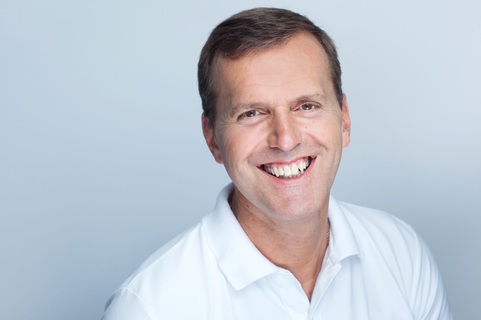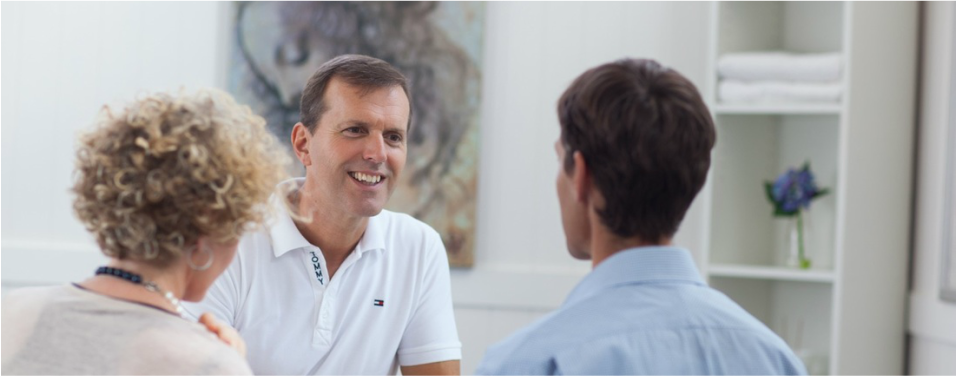Spotlight on: Steffen Messerschmidt - UniMed Brisbane Practitioner
|
Steffen is a key part of the practitioner team at Universal Medicine Brisbane. Prior to working at the UniMed Brisbane Clinic, Steffen ran his own well established and respected Naturopathic and Sports Medicine Clinics for 15 years both in Brisbane and on the Sunshine Coast.
Originally qualifying in and practicing Sports Medicine in the US and then as a Naturopathic Doctor in Germany over 30+ years ago, Steffen has been practicing and developing the Universal Medicine Therapies since 2006. Steffen specializes in Natural & Nutritional Medicine and Muscular Skeletal Therapy as well as Spinal, Joint and Back Therapy and has a deep love for the care and health of his clients and indeed all people. This is reflected in his clinic work, his international charity work and his regular series of community and educational talks designed to inform, empower and inspire people facing health challenges, as well as support people to understand that they are capable of listening to their body's needs and once they tune in the possibilities for a vital way of living are endless. Q1. Tell us a little about yourself and why you chose to become a Naturopath? I was born in New York City – across the road from Central Park in the Mount Sinai Hospital. I was raised in Long Island, New York and later moved to Heidelberg, Germany with my family. I was always interested in how the body works and how to support people with health issues – that just came naturally to me. Originally, I trained in conventional medicine in the USA and went on to specialize in Holistic Sports Medicine, Orthopaedics and Rehabilitation. Following this, I studied Natural Medicine at the German Paracelsus College, becoming what is known as a Naturopathic Physician. Further to this, I undertook studies in Nutrition and Orthomolecular Medicine at the University of Lisbon, obtaining a degree in Nutrition and Orthomolecular Medicine. For a period of five years, I worked and studied in the field of Psycho-Neuro Immunology and Epigenetics. |
Q2. How did you come to be involved with UniMed Brisbane?
I was involved and supported UMB from the start and later started to practice from here once a week, twice a week and then slowly I built up the days until now it has become my main clinic to work from. In my development through the Universal Medicine Therapies and therefore re-defining and changing my approach to how I worked I felt I wanted to work with other Practitioners with that level of integrity - also clearly inspired by the way this works in the Universal Medicine Clinic in Goonellabah. Q3. What do you love about UniMed Brisbane? Besides the fact that it is an amazing building – heritage listed and beautiful - the main thing would be it’s potential to support the wider Brisbane community as well as interstate and international patients. I really enjoy working at UniMed Brisbane because it is a place without dynamics, competition or rivalry between the practitioners. And I really appreciate and value the fact that the practitioners all work together harmoniously to support the patient with true patient centred care. This is very rare in the medical and complementary health arenas to experience on this level and I love working in this environment. Q4. Apart from your work at UniMed Brisbane you are involved in a charity project in Vietnam, can you share a little about that with us? I travel to Hoi An twice a year and work in two Pacific Hospitals in the Rehabilitation, Oncology and International Departments. Along with this I provide training and workshops for the doctors, nurses and hospital staff. I find the hospital management, staff and the patients totally open to the Universal Medicine Therapies - they have come to respect and enjoy these therapies, which is what I mainly practice when I am there. Q5. Can you share with us from your many years of experience... What is the most important thing we can do for our health? Looking at your health with honesty and listening to your body, as the body constantly communicates with us – unfortunately most of us don’t want to hear what it has to say as that usually means changing the way we are living. We can’t continue to pretend we do not understand what our body is communicating with us ‘I do not speak that language – go away’ as this approach to living has illness and disease worldwide, skyrocketing. |


